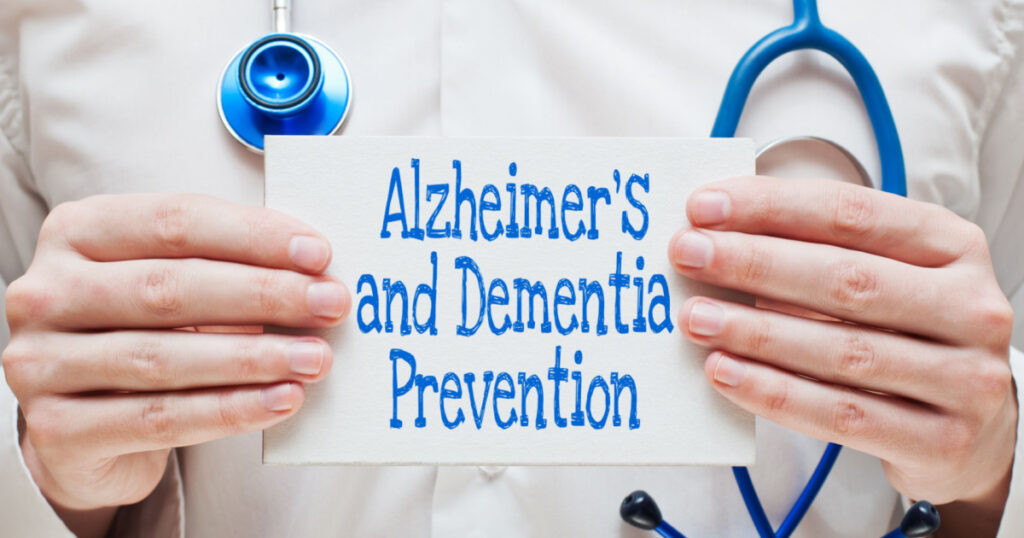No matter what age, Dementia is a devastating diagnosis. That being said, early-onset Alzheimer’s and dementia is particularly gut-wrenching. As doctors began to see an increase in this diagnosis, scientists began working to figure out why. In a groundbreaking study published in JAMA Neurology, researchers have identified 15 factors that are linked to the risk of developing early-onset dementia. The study, conducted using data from the UK Biobank, sheds light on the modifiable and non-modifiable risk factors associated with the incidence of young-onset dementia (YOD). This research not only expands our knowledge of dementia risk factors but also paves the way for targeted interventions and preventive measures.
Understanding Early-Onset Alzheimer’s

Early-onset Alzheimer’s, a form of dementia, occurs before the age of 65. It is a neurodegenerative disease that affects cognitive functions such as memory, thinking, and behavior. While Alzheimer’s disease is commonly associated with older adults, early-onset cases are relatively rare, accounting for approximately 5-10% of all Alzheimer’s diagnoses. The study aims to identify factors that may contribute to the development of early-onset Alzheimer’s, offering insights into potential preventive measures and therapeutic possibilities. (1)
Read More: This 5-minute personality test that can determine your Alzheimer’s risk is shockingly accurate
The Study

The study utilized extensive data from the UK Biobank, which included over 356,000 participants. The researchers analyzed 39 potential risk factors within various domains. These included sociodemographic factors, genetic factors, lifestyle factors, environmental factors, blood marker factors, cardiometabolic factors, psychiatric factors, and other factors. The data were collected between 2006 and 2010, with follow-up assessments conducted until 2021 for England and Scotland and 2018 for Wales.
Key Findings

As already mentioned, the scientists were looking for what genetic, lifestyle, and behavioral factors might contribute to this disease—particularly the early onset of it. The study revealed 15 factors significantly associated with a higher risk of young-onset dementia. “I believe based on our results that mental health is very important,” said lead study author Stevie Hendriks, PhD, of Maastricht University in the Netherlands. This highlights the need for more access to mental health help, as well as infrastructure and programs to help combat loneliness and isolation in all age groups. (2) These factors include the following:
Lower formal education:

Individuals with lower levels of education were found to be at an increased risk.
Lower socioeconomic status:

Socioeconomic status was identified as a significant risk factor.
Apolipoprotein E status:

Carrying two apolipoprotein E4 alleles was associated with higher YOD risk.
No alcohol use:

Not consuming alcohol was linked to an increased risk of YOD.
Read More: One Early Sign of Alzheimer’s That May Show Up Before Others (Not Memory Loss)
Alcohol use disorder:

Those with a history of alcohol use disorder were found to have a higher risk.
Social isolation:

Feeling socially isolated was associated with an elevated risk.
Vitamin D deficiency:

Low levels of vitamin D were linked to an increased risk.
High C-reactive protein levels:

Elevated C-reactive protein levels were found to be a risk factor.
Read More: Could Stem Cells from Menstrual Blood Help Treat Diseases Like Alzheimer’s?
Lower handgrip strength:

Poor handgrip strength was associated with an increased risk.
Hearing impairment:

Individuals with hearing impairment faced a higher risk.
Orthostatic hypotension:

A drop in blood pressure upon standing up was linked to increased YOD risk.
Stroke:

A history of stroke was found to be a significant risk factor.
Read More: The Cause of Alzheimer’s Could Be Coming From Inside Your Mouth, Study Claims
Diabetes:

Individuals with diabetes had an elevated risk of YOD.
Heart disease:

Those with heart disease faced a higher risk.
Depression:

Suffering from depression was associated with an increased risk.
What Does This Mean?

The findings of this study provide crucial insights into the risk factors for early-onset dementia. Notably, many of these factors are modifiable, suggesting that targeted interventions and preventive measures may prove effective in reducing the incidence of YOD. The identification of these risk factors opens up new possibilities for designing dementia prevention initiatives and developing therapeutic approaches specific to early-onset cases. By addressing these modifiable risk factors, there is hope for mitigating the burden of YOD and improving the quality of life for individuals at risk.
The Bottom Line

It is important to note that this study contributes to our understanding of early-onset Alzheimer’s, but further research is needed to comprehend the underlying mechanisms and establish effective interventions fully. Nonetheless, these findings mark a significant step forward in the field of dementia research and offer hope for greater awareness, prevention, and treatment of early-onset dementia.
Sources
- “Risk Factors for Young-Onset Dementia in the UK Biobank.” JAMA Network. Stevie Hendriks, PhD, Janice M. Ranson, PhD, Kirsten Peetoom, PhD, Ilianna Lourida, PhD, Xin You Tai, PhD, Marjolein de Vugt, PhD, David J. Llewellyn, PhD, Sebastian Köhler, PhD. December 26, 2023.
- “15 Risk Factors Identified For Early-Onset Dementia.” Everyday Health. Lisa Rapaport.

